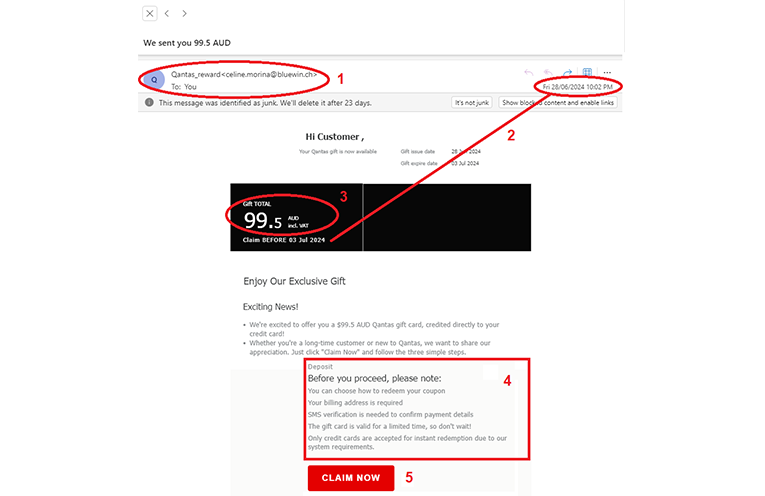
SCAMS take many forms, and awareness is key to preventing some potentially painful outcomes, as several locals have recently learnt the hard way.
A ‘PayPal phishing scam’ has been doing the rounds, targeting vulnerable individuals, and even slipping under the radar of some banks by mimicking your spending behaviour.
“I received a gift voucher, which I thought came from PayPal,” said one local victim, who wished to remain anonymous.
“It took several days, and several transactions, before my banking institution cottoned on – there were several small amounts charged to my PayPal-linked card.
“The bank told me that the transactions were in line with my previous online activity, so no alarms were raised, until I checked it myself.”
‘Phishing’, like most internet-age vernacular, derives from ‘fishing’, as that is, metaphorically, what the scammer tries to do.
In a ‘phishing’ attack, a scammer sends out emails or text messages designed to hook the recipient with urgent language about an unexpected invoice or offer, and a quick way to deal with it, duping their victims into clicking/tapping on a link or attachment that will infect their computer, seeking and stealing sensitive information, including bank details.
In the latest attacks, users’ PayPal accounts have been the ultimate targets.
Scammers are relentless and utterly unscrupulous, operating anonymously and employing many base psychological ploys to suck in their victims.
There are, however, a few red flags one can scrutinise.
Firstly, legitimate companies never refer to customers generically, such as ‘Hi Customer’, and will always use your recognised name or handle.
Check the sender’s email address, and never assume that the presence of a realistic logo means it came from that company.
Often, the dates for actions to be taken, like ‘pay this invoice’ or ‘claim this prize’, are within days, or mere hours, of the time the message was sent, eliciting a sense of urgency.
The grammar is often poor, including numerals at the start of sentences, oddly placed full-stops, and monetary amounts without the customary two decimal places.
PayPal’s official (real) website has a host of information that concerned users should consult before clicking anything.
A word of caution from another local victim: “If you do any transactions online with your card, change it to a credit card, not a debit card – the former goes through the bank, the latter lets them rob you directly.”
By Thomas O’KEEFE
